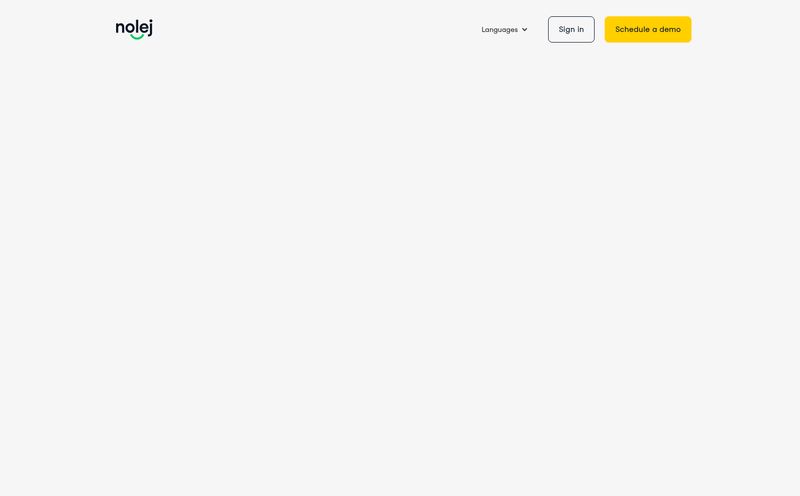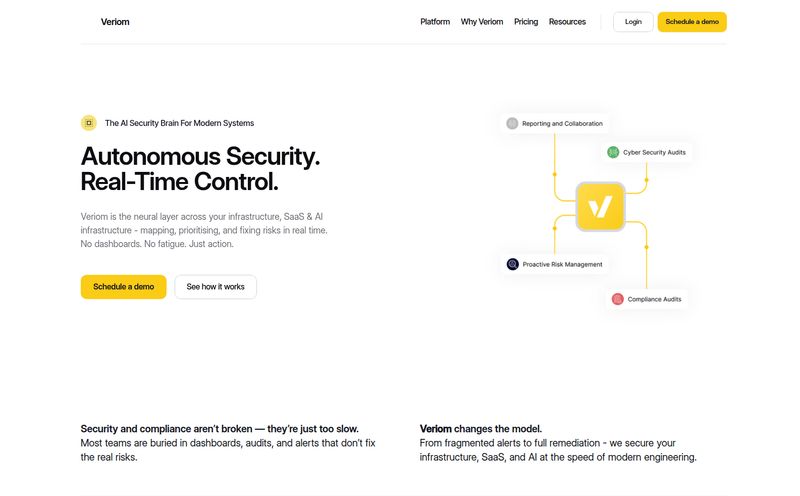As a parent and someone who’s been neck-deep in digital trends for years, I've got a bone to pick with technology. Specifically, the 'Google reflex.' You know what I'm talking about. The moment a question pops into your kid's head—"Why is the sky blue?" "How do magnets work?"—their first instinct, and ours, is to just… ask the internet. And poof. Instant answer. Curiosity satisfied. End of story.
But is it, really? The process of wondering, of puzzling, of connecting the dots… that’s where the real learning happens. That’s where brains get built. And I've been getting a little worried that we're trading genuine thinking for cheap, fast facts. It’s like substituting a home-cooked meal for a vending machine snack. Fills the hole, but offers zero nutrition.
So when I stumbled upon Joyschooler, my professional skepticism was on high alert. Another AI learning app? Great. But then I looked closer, and my tune started to change. This one’s different. It's not an answer machine. It's a question machine. And that, my friends, is a game-changer.
So, What Is Joyschooler, Exactly?
Forget what you think you know about AI tutors. Joyschooler isn't a chatbot that spits out encyclopedia entries. Instead, it positions its AI as a Socratic guide. When a child asks a question, the AI doesn't answer it. Not directly, anyway. It responds with another question designed to make the child think about what they already know and guide them toward their own discovery.
It’s a conversation. A real back-and-forth. The AI might ask, “That's a great question! What have you noticed about other things that are blue?” or “What do you think would happen if you tried to push two of the same sides of a magnet together?”

Visit Joyschooler
It's like having a patient, endlessly curious mentor on call. It nudges and prompts until the child starts to form their own hypotheses. Only after they've done the mental legwork does Joyschooler reward them with curated, high-quality resources like videos and book recommendations to deepen their newfound understanding. It’s not just giving them a fish; it's teaching them how to fish, and then showing them where the best fishing spots are.
The Socratic Method Gets a 21st-Century Upgrade
I know, I know, throwing around terms like “Socratic method” can sound a bit high-brow. But stick with me. It's a teaching style that's been around since ancient Greece for a reason: it works. It’s based on the idea that disciplined, thoughtful dialogue can lead to deeper insights. Instead of being a passive recipient of information, the learner becomes an active participant in their own education.
What I find fascinating is seeing this ancient philosophy powered by modern AI. For years, educators have worried that technology would make students lazy. And in many cases, they were right! But a tool like Joyschooler flips that script. It uses technology to bring back a classic, powerful form of learning that’s been hard to scale in a traditional classroom of 30 kids. Suddenly, every child can have a personalized guide who has the patience to ask them question after question. That's pretty cool.
My Honest Take on The Joyschooler Experience
Alright, so the concept is solid. But what’s it actually like in practice? I’ve looked at the pros and cons, and here’s my no-fluff breakdown.
The Things I Genuinely Like
The biggest win here is the focus on critical thinking. In an era of rampant misinformation, teaching kids to question, analyze, and reason is probably the most important skill we can give them. Joyschooler is basically a workout for their critical thinking muscles. The personalization is also a huge plus. The AI guide adapts to the child's unique train of thought, making the experience feel tailored and responsive. And I have to give them credit for the curated resources. It’s a relief to know that when my kid finally gets to the “watch a video” part, it’s not going to be some random, ad-filled YouTube channel, but something thoughtfully selected.
The Reality Check
Of course, no tool is perfect. Some folks might argue that its effectiveness hinges entirely on the quality of the AI, and they'd be right. If the AI guide gets repetitive or can't understand a nuanced question, the experience could get frustrating. It's a limitation of all current AI. You also obviously need a stable internet connection, which can be a barrier for some families. And, the platform is limited to the subjects it's been trained on. It’s not going to be able to guide your kid through advanced quantum physics... at least not yet.
Let's Talk About The Price Tag
Money matters. So how much does this mental sparring partner cost? The pricing is actually refreshingly straightforward.
| Plan Type | Cost | Key Features |
|---|---|---|
| Family | $7.99 / month | Supports up to 8 learners, Unlimited conversations |
| Classes | Schools | Districts | Contact for pricing | Unlimited conversations, class assignments, individual progress monitoring |
In my opinion, $7.99 for a family of up to eight kids is a pretty great deal. That’s less than two lattes for a month of unlimited access to a tool that actively builds your kids' brains. For schools and districts, the custom plan makes sense, as it adds features for classroom management and monitoring that a parent wouldn't necessarily need. I see this as a sign that they're serious about being a legitimate educational tool, not just a toy.
Who Is This Really For?
I can see a few groups getting a ton of value out of Joyschooler.
- Curious Parents: If you want to give your kids a productive way to use screen time and supplement their school learning, this is a fantastic choice. It's a perfect answer to the dreaded "I'm bored!"
- Homeschooling Families: For homeschoolers, this could be an absolute gem. It provides a structured way to encourage independent inquiry and can act as a tireless teaching assistant across various subjects.
- Forward-Thinking Teachers: With the dedicated school plan, teachers can use this as a station in their classroom, a tool for differentiated instruction, or a way to challenge gifted students who finish their work early.
My Final Verdict: Is Joyschooler Worth Your Time and Money?
Look, as an SEO and traffic guy, I see a lot of shiny objects. Most of them fade fast. Joyschooler, however, feels different. It feels like it has substance. It’s not trying to replace parents or teachers. It’s not even trying to be the ultimate source of all knowledge. It’s just trying to do one thing, and do it well: teach kids how to think.
It’s a tool that encourages patience in an impatient world. It fosters curiosity instead of just satisfying it. And for that reason alone, I think it's not only worth the modest price tag, but it's also a tool that gives me a bit of hope for the future of learning in our increasingly digital world.
Frequently Asked Questions About Joyschooler
- How is Joyschooler different from just using Google or Alexa?
- The core difference is the method. Google and Alexa are designed to give you direct, fast answers. Joyschooler is designed to do the opposite: it avoids giving a direct answer and instead asks guiding questions to help the user think through the problem and arrive at their own conclusions.
- What age group is Joyschooler best for?
- While not explicitly stated, the Socratic approach and topics are likely best suited for elementary and middle school-aged children (roughly ages 6-14) who have natural curiosity and are developing their reasoning skills.
- Can I track my child's learning or progress?
- The plan for schools and districts explicitly mentions monitoring individuals' learning. While not detailed for the Family plan, the conversational nature allows a parent to review the chat logs and see their child's thought process, which is a form of progress tracking in itself.
- Is the content safe and appropriate for kids?
- Yes. A major feature is the use of curated videos and books. This means the content has been vetted and selected for its educational value and appropriateness, providing a much safer environment than an open internet search.
- Does Joyschooler work on tablets and phones?
- As a web-based platform, it should be accessible on any device with a modern web browser, including desktops, laptops, tablets like iPads, and smartphones.
- Is there a free trial available?
- The pricing page doesn't currently mention a free trial. Your best bet is to check their website directly for the most up-to-date offers or perhaps start with one month to see if it's a good fit for your family.



